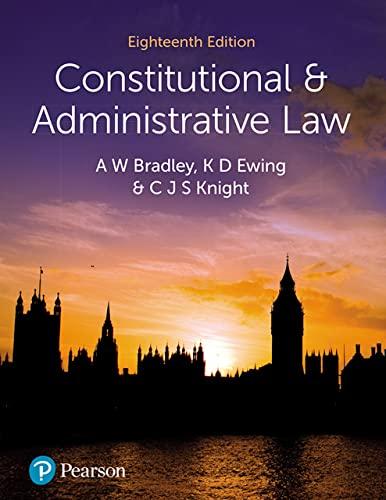Question
In June 2022, Deloitte Australia and Swinburne Edge(Swinburne University of Technology) published a joint research paper entitled Reset, Restore, Reframe - Making FairWork FlexWork (the
In June 2022, Deloitte Australia and Swinburne Edge(Swinburne University of Technology) published a joint research paper entitled "Reset, Restore, Reframe - Making FairWork FlexWork"("the Reset Research") available here. The Reset Research found that flexible working options and physical, emotional, and mental wellbeing are just as important for many Australian employees as any pay.
The Research argued (at page 14) that:
"Pandemic-induced work-from-home (WFH) was not a choice for flexible location workers. When it was initially imposed, many workers experienced a better sense of work-life balance for the first time. No commute allowed for more flexibility in the hours we worked, more precious family time and more walks with the dog. And the virtual technologies that kept us connected with our teams while working remotely have been more effective for collaboration than many expected."
The Research concluded (at page 25) that:
"Our traditional way of measuring value is no longer fit for purpose for a significant cohort of workers, who are valuing wellbeing and choice at least as highly as pay. Placing compliance with hourly rates as paramount, while not considering the value of choice, flexibility, and agency, is not delivering what many workers want. The Fair Work System needs to evolve to recognise that employees value choice, flexibility, and wellbeing, and jobs that deliver these elements will be better than those that do not."
In June 2021, Bain & Company, Inc., and Chief Executive Women (CEW) published a Report entitled "The Equitable Flexibility: Reshaping our Workforce" ("the CEW Report") availablehere. The CEW Report found that 95% of employees in Australia want flexibility in their work and want business managers to encourage it in the workplace.
The Report argued (at page 9) that:
"The Australian economy needs to embed flexibility as a key tenet of its post-Covid-19 strategy if it is to continue on a trajectory of strong growth. Similarly, companies need flexibility in their human capital strategies to enhance performance, remain relevant, and attract top talent."
The Report (at page 25) concluded that:
"While it may sound ironic, instituting widespread flexibility requires discipline. To affect meaningful changein performance, culture, and equitycompanies need to be purposeful and thorough in how they design flexibility. Equitable flexibility touches every facet of the company. From top to bottom, companies will need to adjust workflows and business processes, cultural norms, technology, and tools."
With reference to the Reset Research, the CEW Report, and any other relevant primary and secondary materials, critically analyse the legal and ethical issues associated with flexible working arrangements in Australia especially remote working and working from home.
Support your legal discussion with reference to either protection orneoliberalism views related to employment law and your ethical discussion with reference to either deontology or utilitarianism concepts.
For the purposes of the Research Essay, you can select either protectionism or neoliberalism (pick only one) for the legal discussion and deontology or utilitarianism for the ethical discussion (pick only one). The perspectives you select may reveal (and have different views on) the relevant legal and ethical issues. Keep in mind, however, that part of advancing your own argument, is countering any likely opposition to that argument.
You should ensure all of your discussion is effectively supported with research/evidence.
Part of what makes an effective thesis statement (and essay argument more broadly) is the advancement of a position. For the Research Essay, you have been instructed to select a perspective for each of the legal and ethical aspects. That perspective should be your focus. However, to justify the position, you ultimately adopt, you need to demonstrate why your position is preferable to the other position(s) (i.e., pre-empt any logical counterargument) which may involve engagement with the other perspective.
Give introduction with thesis statement focusing on one theme from both ethical and legal perspectives
GUIDANCE:
The essay will need to include discussion of:
- the prevalence of flexible working arrangements and work from home in Australia;
- the reason(s) for the prevalence of flexible working arrangements and work from home in Australia;
- the legal issue(s) associated flexible working arrangements and work from home in Australia (from a protectionist or neoliberal perspective);
- the ethical issue(s) associated with flexible work arrangements and work from home in Australia (from a deontological or utilitarian perspective); and
- your position with respect to (c) and (d).
Use Australian Legislation to support your themes and also provide Australian Cases to support your answer. Also refer to the 2 reports and use them as primary material.
What you need to ensure though (in the context of secondary source material) is maintain an appropriate balance between the more scholarly material and media/similar content.
Step by Step Solution
There are 3 Steps involved in it
Step: 1

Get Instant Access to Expert-Tailored Solutions
See step-by-step solutions with expert insights and AI powered tools for academic success
Step: 2

Step: 3

Ace Your Homework with AI
Get the answers you need in no time with our AI-driven, step-by-step assistance
Get Started


